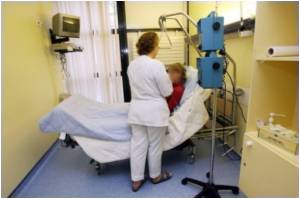
Specifically, researchers report that difficulty falling sleep and non-restorative sleep were both associated with a higher risk of mortality, particularly mortality related to cardiovascular disease.
Researchers followed more than 23,000 men in the Health Professionals Follow-Up Study who self-reported insomnia symptoms for a period of six years.
After adjusting for lifestyle factors, age and other chronic conditions, researchers found that men who reported difficulty initiating sleep and non-restorative sleep had a 55 percent and 32 percent increased risk of CVD-related mortality over the six year follow up, respectively, when compared to men who did not report these insomnia-related symptoms.
The study will be published in Circulation.
Source-ANI














